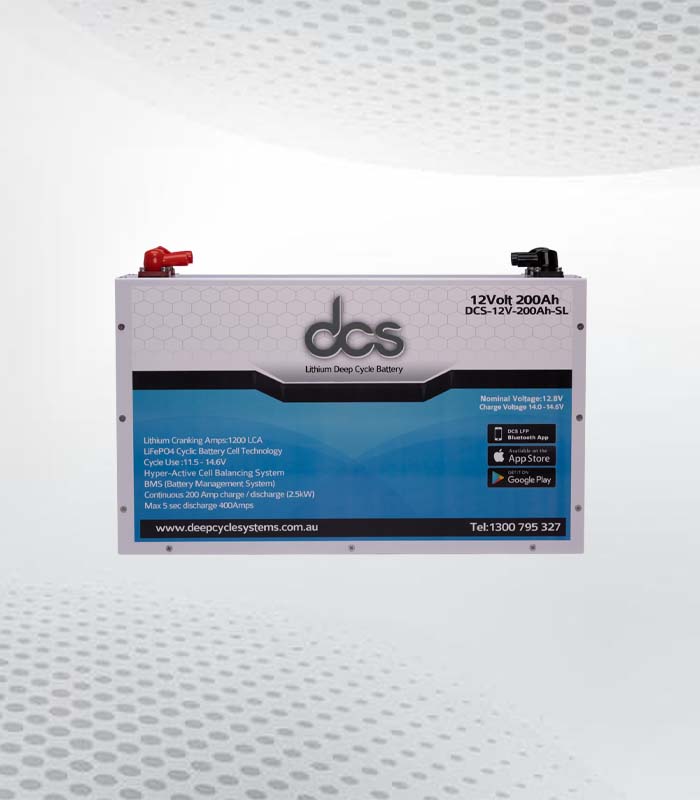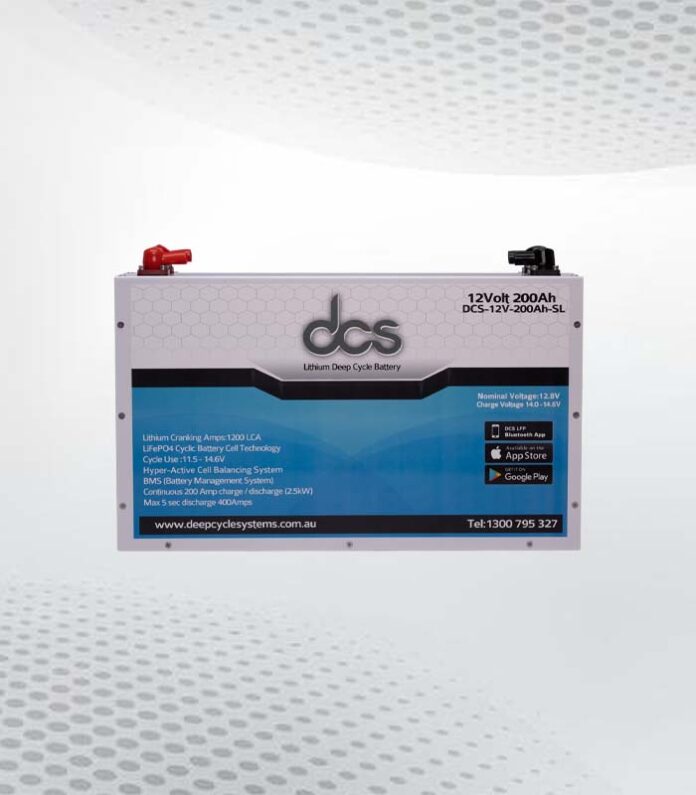As the world shifts towards a more sustainable and eco-friendly future, the demand for electric vehicles (EVs) is rising. The lithium-ion (Li-ion) car battery is at the heart of every EV, a technological marvel that has revolutionized travel. In this post, we’ll deeply dive into the fascinating world of Li ion car battery technology, exploring the science behind its incredible performance, the innovative materials that make it possible, and the future of EV battery development. Buckle up and get ready to power up your knowledge of this cutting-edge technology!
How Li-Ion Car Batteries Work
At the heart of every electric vehicle lies a remarkable piece of technology: the lithium-ion (Li-ion) car battery. This robust component drives the electric revolution, enabling cars to run silently, efficiently, and sustainably. But have you ever wondered how Li-ion car batteries work their magic?
The answer lies in a complex dance of electrochemistry, where lithium ions move between two electrodes, releasing and storing energy as they go. The process begins with a positive cathode and a negative anode, separated by an electrolyte that facilitates the flow of ions. Lithium ions migrate from the cathode to the anode when the battery is charged, storing energy in the process.
When the battery is discharged, the ions flow back to the cathode, releasing energy to power the vehicle. This continuous cycle of charge and discharge makes Li-ion car batteries efficient and reliable, providing the perfect blend of power, range, and sustainability for the modern electric vehicle.
The Science behind Li-Ion Battery Performance
At the heart of every electric vehicle lies a powerful and intricate technology – the Lithium-Ion (Li-ion) car battery. But what makes it tick? The science behind Li-ion battery performance is a fascinating blend of chemistry, physics, and engineering. It starts with the battery’s fundamental components: positive cathodes, negative anodes, and electrolytes.
Lithium ions flow from the cathode to the anode when a Li-ion battery is charged, releasing energy. Conversely, the ions flow back to the cathode during discharge, generating electricity to power the vehicle. The performance of a Li-ion battery is heavily influenced by factors such as the quality of the materials used, the design of the battery’s architecture, and the precision of the manufacturing process.
The battery’s ability to efficiently manage heat, minimize energy loss, and optimize charging and discharging cycles is crucial in determining its overall performance. By understanding the intricate science behind Li-ion battery performance, we can gain a deeper appreciation for the remarkable technology that powers today’s electric vehicles.
Innovative Materials Used In Li-Ion Car Batteries
At the heart of Li-ion car batteries lies a remarkable array of innovative materials that work harmoniously to deliver unparalleled performance, efficiency, and reliability. One of the most significant advancements in recent years is using advanced cathode materials, such as lithium nickel manganese cobalt oxide (NMC) and lithium iron phosphate (LFP). These materials have been engineered to provide higher energy density, longer cycle life, and improved thermal stability, allowing for faster charging and discharging of the battery.
Developing advanced anode materials, such as graphite and silicon, has created more efficient and durable battery cells. Furthermore, introducing novel electrolyte materials, such as lithium salts and ionic liquids, has enhanced Li-ion car batteries’ overall safety and performance. The clever combination of these cutting-edge materials has revolutionized the electric vehicle industry, enabling the widespread adoption of Li-ion batteries as a reliable and efficient power source for the next generation of eco-friendly vehicles.
Features of Lithium Battery Car Battery
At the heart of the modern electric vehicle lies the lithium battery car battery, a marvel of modern technology that has revolutionized the way we think about transportation.
High Energy Density
One of the most prominent features of a lithium car battery is its high energy density. This means that lithium batteries can store substantial energy relative to their size and weight.
Fast Charging Capabilities
Lithium car batteries are known for their fast charging capabilities. Compared to other types of batteries, such as lead-acid or nickel-metal hydride, lithium batteries can be charged more quickly. This feature significantly reduces the downtime required for charging, enhancing the convenience for EV owners and contributing to the overall adoption of electric vehicles.
Long Cycle Life
Another significant feature of lithium car batteries is their long cycle life. A cycle refers to a full charge and discharge sequence. Lithium batteries can endure thousands of these cycles before their performance degrades noticeably. This longevity translates to a lower total cost of ownership for EVs, as the battery will not need to be replaced as frequently.
Lightweight Design
Lithium car batteries are lighter compared to other battery types with similar capacities. This lightweight design contributes to the overall efficiency of electric vehicles by reducing their total weight and enhancing performance, handling, and energy efficiency. The lighter the car, the less energy it requires to operate, thus extending the range and reducing energy consumption.
 The Future of EV Battery Development
The Future of EV Battery Development
As the world continues to shift towards a more sustainable and environmentally friendly future, the demand for electric vehicles (EVs) is rising. The lithium-ion (Li-ion) car battery is at the heart of this revolution, the technology that powers these eco-friendly vehicles. But what does the future hold for EV battery development?
As researchers and manufacturers continue to push the boundaries of innovation, we can expect significant advancements in the future. Solid-state batteries, which replace the traditional liquid electrolyte with a solid material, are being touted as the next generation of EV batteries. Solid-state batteries could be the game-changer that takes EVs to the mainstream with the potential to offer even greater energy density, faster charging times, and enhanced safety.
Additionally, advancements in battery management systems, charging infrastructure, and recycling technologies will also play a crucial role in shaping the future of EV battery development. As the industry continues to evolve, one thing is sure – the future of EVs is bright, and it’s all powered by the innovative technology behind the Li-ion car battery.
Overcoming Challenges in Li-Ion Car Battery Technology
As the demand for electric vehicles continues to surge, the need for advanced Li-ion car battery technology has become more pressing. However, the development of these batteries has its challenges. One of the major hurdles is the issue of range anxiety, where drivers worry about running out of juice on the road.
To overcome this, manufacturers are working to increase the energy density of Li-ion batteries, allowing them to store more power in a smaller space. Another challenge is the high production cost, making electric vehicles more expensive than their gasoline-powered counterparts. Researchers are exploring new materials and manufacturing techniques to drive down costs and make Li-ion batteries more accessible to the masses.
Additionally, the safety of Li-ion batteries is a top concern, as they can be prone to overheating and even catching fire in extreme cases. To mitigate this risk, manufacturers are developing advanced cooling systems and protective casings to ensure the safe operation of these batteries. By tackling these challenges head-on, the industry is making rapid progress towards the widespread adoption of Li-ion car battery technology.
Charging Technologies and Infrastructure
As the world shifts towards a more sustainable and eco-friendly transportation system, the technology behind Li-Ion car batteries has become a critical component of the electric vehicle (EV) revolution. At the heart of this revolution is the charging technology and infrastructure that enables EV owners to power up their cars quickly and efficiently.
Today, advanced charging systems are being developed to support the growing demand for EVs, including fast-charging stations that can replenish a battery to 80% in under 30 minutes and high-power charging corridors that can deliver up to 350 kW of power.
Moreover, innovative charging technologies such as inductive charging, which allows for wireless charging, are being explored, promising to make EV ownership even more convenient and accessible. As the charging infrastructure continues to evolve, it is likely to play a vital role in shaping the future of electric mobility, making it easier and more practical for people to switch to eco-friendly transportation options.
Unbeatable Significance of 12 Volt Lithium Battery
In electric vehicles, the 12 volt lithium battery stands out as a game-changer. Its unparalleled Significance lies in its ability to provide a reliable and efficient power source, revolutionizing how we travel. With its high energy density, long cycle life, and rapid charging capabilities, this battery technology has become the gold standard for electric vehicles. Unlike traditional lead-acid batteries, 12-volt lithium-ion batteries significantly reduce them, making them an attractive option for automotive manufacturers seeking to improve fuel efficiency and reduce emissions.
Moreover, their ability to operate in a wide range of temperatures and their minimal self-discharge rate makes them an ideal choice for drivers who require a dependable and consistent power source. As the electric vehicle market continues to grow, the 12-volt lithium-ion battery is poised to play a pivotal role in shaping the future of sustainable transportation.
Conclusion
In conclusion, the technology behind Li-Ion car batteries is a cornerstone of the electric vehicle revolution. Their superior energy density, efficiency, and ongoing advancements make them the preferred choice for automotive energy storage. Despite challenges such as safety concerns and environmental impact, battery design and management innovations continue to drive progress. As the industry evolves, Li-Ion batteries are expected to become even more integral, paving the way for a sustainable and electrified future in transportation.
FAQs
How does a Li-Ion car battery work?
A Li-Ion car battery moves lithium ions between the anode and cathode through an electrolyte during charging and discharging cycles. Lithium ions travel from the anode to the cathode when the vehicle is in use, creating an electric current that powers the car.
What are the main advantages of a Li-Ion car battery?
The main advantages of a Li-Ion car battery include:
- Higher energy density, which allows for longer driving ranges.
- Faster charging times compared to other battery types.
- A longer lifespan, which makes them more economical over time.
They are also lighter, contributing to overall vehicle efficiency.
What are the environmental impacts of a Li Ion car battery?
While a Li Ion car battery reduces greenhouse gas emissions compared to traditional internal combustion engines, environmental concerns are related to its production and disposal. Mining for lithium and other materials can be environmentally damaging, and improper disposal can lead to hazardous waste. However, recycling programs and advancements in sustainable mining practices are being developed to mitigate these impacts.
How long does a Li-Ion car battery last?
The lifespan of a Li-Ion car battery typically ranges from 8 to 15 years, depending on usage patterns, charging habits, and environmental conditions. Most manufacturers offer warranties that cover the battery for a certain number of years or miles.
What is the future of Li-Ion car battery technology?
The future of Li-Ion car battery technology looks promising, with ongoing research focused on improving energy density, reducing costs, and enhancing safety. Innovations such as solid-state batteries and advanced recycling techniques are expected further to boost the performance and sustainability of Li-Ion car batteries.
| Other Good Articles to Read |
| Niche Blogs Connect |
| Blogs 97 |
| Blog Stitution |
| Blogs Unplugged |
| Blogs Cotch Rouge |
| Blog Signatr |
| Blog Sintonias |
| Blog Zilla |
| Consumer Forums |
| Finance Forums |
| G Blogs |
| Too Blog |
| Related Business Listings |
| Contact Directory |
| Local Business Profiles |

